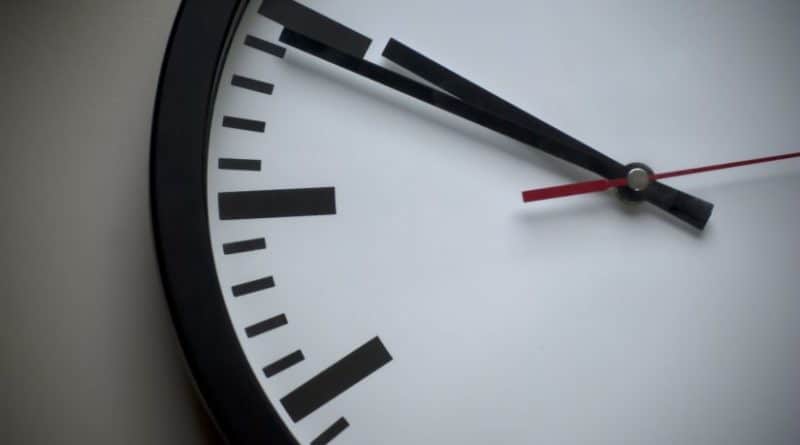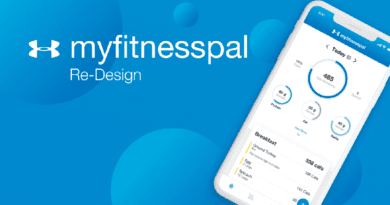Meal Timing for Macros: Does It Even Contribute to Your Diet?
For years, many of us in the fitness world were obsessed with meal timing. I’ll admit, my life used to revolve around making sure I hit my protein, carb, and fat numbers at the “right” time. Waking up early to slam a protein shake? Anxious if I missed my post-workout meal? That was me. But is orchestrating your day around meal timing truly necessary for your success? For most of us, the answer is a resounding no, and frankly, we should all be thankful for that.
As a certified sports nutritionist with years of experience, I’ve seen countless fitness myths come and go. The idea that you must eat at specific times to avoid losing muscle or gaining fat has been one of the most persistent. Thankfully, science has largely debunked this “bro-science,” freeing us up to focus on what really matters.
This guide will break down the science, bust the myths, and show you exactly what to focus on to achieve your health and fitness goals without the unnecessary stress of watching the clock.
Disclaimer: This article is for informational purposes only and is not meant to treat or diagnose any condition. It is recommended that you speak with your doctor before starting any exercise program, changing your daily nutrition, or adding any supplements to your regimen.
Table of contents
Key Takeaways
- Total Calories Trump Timing: For weight loss and general health, your total daily calorie and macronutrient intake is far more important than the specific times you eat.
- The “Anabolic Window” is Flexible: The post-workout window to consume protein and build muscle is much larger than the old 45-minute rule, likely spanning 4-6 hours around your workout.
- Late-Night Carbs Are Not the Enemy: Eating carbohydrates at night does not automatically lead to fat gain. As long as you are within your daily calorie goals, the timing has minimal impact.
- Timing Matters for Elite Performance: Specific nutrient timing strategies remain crucial for elite athletes and individuals with certain health conditions like diabetes.

Meal Timing: When To Consume Calories
The old guard of fitness advice was full of strict rules. Remember being told to eat as soon as you wake up because your body was supposedly eating its own muscle while you sleep? The idea of “breaking the fast” made the alarm clock feel like a dinner bell.
Many of us, myself included, were convinced our hard-earned gains would vanish if we didn’t feed our muscles immediately. We planned our entire lives around this concept, blending oats and protein powder into a morning shake, believing the liquid form would hit our system faster.
The “don’t eat late at night” Myth
Another myth that refuses to die is the idea that eating food late at night will cause it to be stored as fat. This has been thoroughly debunked. The key to managing your weight is your total energy balance over 24 hours.
A 2023 study published in the Journal of the American Heart Association tracked 547 participants and found that the timing of meals had no impact on weight change. What did matter was the total number of large and medium-sized meals consumed. It all comes down to total calories in versus calories out.
In fact, some research suggests that for trained individuals, consuming carbohydrates in the evening doesn’t negatively impact body composition as long as daily calorie goals are met. A recent study in the European Journal of Nutrition confirmed that carb timing made no meaningful difference in fat gain or performance when total calories were matched.
RELATED: Can You Lose Weight Without Counting Macros?
Science now shows that a small protein-rich meal before bed can actually support muscle protein synthesis overnight and even improve metabolism and feelings of fullness the next morning.
It’s about BALANCE, not meal timing
So, what should you focus on instead of the clock? A balanced distribution of your macronutrients, especially protein. While the exact timing isn’t critical, how you space out your protein intake can make a difference in optimizing muscle growth.
Research from leading experts in the field suggests that evenly distributing your protein intake throughout the day is more effective for muscle protein synthesis than eating the bulk of it in one meal. One study demonstrated a 25% greater muscle protein synthesis response when protein was spread evenly across three meals compared to a skewed intake.
A practical goal, recommended by the International Society of Sports Nutrition (ISSN), is to consume 20-40 grams of high-quality protein every 3 to 4 hours. This approach keeps a steady supply of amino acids available for your muscles.
The post-workout “window of opportunity”
I’ll be the first to admit it, I used to panic if I didn’t have a protein shake within 45 minutes of my last rep. This so-called “anabolic window of opportunity” created a ton of unnecessary anxiety for gym-goers everywhere.
Thankfully, this is another myth that has been busted by solid research. Leading researchers like Brad Schoenfeld and Alan Aragon have published extensive reviews showing this “window” is much wider than we thought. Your body doesn’t just stop being receptive to nutrients after an hour.
The modern understanding is that the total protein and carbohydrate intake over the entire day is what truly drives muscle repair and growth. The “anabolic window” is more like a “barn door,” staying open for roughly 4-6 hours surrounding your workout. If you had a protein-rich meal a couple of hours before you trained, the need for an immediate post-workout shake is significantly reduced because those amino acids are still circulating in your system.
The Death of Meal Timing
For the average person focused on health and fitness, meal timing is dead. You can let go of the stress and start focusing on consistency with your total daily nutrition. This means hitting your calorie and macronutrient targets for the day, whether you follow an IIFYM diet or another plan.
RELATED: Can You Track Macros By Taking Photos?
Interestingly, the focus has shifted from post-workout nutrition to what you consume before your workout. Ensuring your body has adequate fuel, primarily from carbohydrates, is key to maintaining energy levels and performance in the gym. If you train in a fasted state, your last meal from the night before becomes your pre-workout fuel.
What about meal timing for elite athletes?
Now, here’s the important exception. For elite athletes, bodybuilders, or endurance competitors, nutrient timing is still a critical component of performance and recovery. These individuals push their bodies to extremes, often training for multiple hours a day.
For them, specific strategies make a tangible difference. The International Society of Sports Nutrition (ISSN) provides detailed guidelines for these scenarios.
- Endurance Athletes: After prolonged events, they need to aggressively replenish glycogen stores. The ISSN recommends consuming 1.2 g of carbohydrates per kg of body weight per hour for the first four hours post-exercise if rapid recovery is needed.
- Bodybuilders: They use precise carbohydrate and fluid manipulation in the final days before a competition to maximize muscle fullness, which can be the difference between winning and losing.
- Multi-Event Athletes: A wrestler or tennis player with multiple matches in one day needs to strategically refuel between events to maintain performance.
But for the vast majority of us, our training doesn’t deplete our energy stores to this extent, making these meticulous timing strategies unnecessary.
Meal timing for health reasons
It’s also crucial to acknowledge that meal timing is very important for individuals with certain health conditions. People with Type 1 or Type 2 diabetes, for instance, must coordinate their meals with their insulin and medication schedules to manage blood sugar levels effectively.
Additionally, those with digestive issues like acid reflux (GERD) may find that avoiding large meals close to bedtime helps manage their symptoms. In these cases, meal timing isn’t about optimizing muscle gain, but about managing a medical condition and overall health.
Hitting Your Numbers Is More Important Than WHEN You Hit Those Numbers
The rise of dieting strategies like intermittent fasting (IF) is a perfect example of this principle in action. People following IF protocols often train in a fasted state and don’t eat for hours afterward, something that would have been considered heresy years ago.
Popular IF methods include:
- The 16/8 Method: This involves fasting for 16 hours and eating within an 8-hour window.
- Alternate-Day Fasting: This involves alternating between days of normal eating and days of complete fasting.
So why does it work for so many people? A 2024 meta-analysis confirmed that intermittent fasting is an effective tool for weight loss, not because of some metabolic magic, but because it’s a simple way to create a calorie deficit. By restricting the eating window, people often naturally consume fewer total calories. A large 2025 review in The BMJ found that alternate-day fasting, in particular, led to slightly more weight loss than traditional calorie restriction.
For the everyday person, stop stressing about the clock. Focus on the quality and quantity of your food. Hitting your daily calorie and macro targets consistently is the strategy that will deliver the results you’re looking for.
Meal Timing FAQs
Is it better to eat many small meals or a few big ones?
For most people, meal frequency doesn’t significantly impact weight loss or metabolism as long as total daily calories are the same. Some studies show that higher meal frequency can help with appetite control, but the best approach is the one that you can stick to consistently.
Does meal timing affect my metabolism?
Your metabolism doesn’t “slow down” at night in the way fitness myths suggest. While there are natural circadian fluctuations, the impact of meal timing on your overall 24-hour metabolic rate is negligible for weight management. Total calorie intake is the primary driver of fat loss or gain.
What is the best thing to eat before a workout?
For most workouts, consuming a meal with complex carbohydrates and a moderate amount of protein 1-3 hours beforehand is ideal. This provides sustained energy. Good options include oatmeal with protein powder, chicken with brown rice, or a banana with peanut butter.
Should I avoid carbs at night if I want to lose fat?
No, you do not need to avoid carbs at night. This is a persistent myth. As long as you are in a calorie deficit for the day, eating carbs in the evening will not prevent you from losing fat. In fact, for some people, it can help with sleep quality and recovery.


*Disclosure: This article may contain affiliate links or ads, which means we earn a small commission at no extra cost to you if you make a purchase through these links. These commissions help support the operation and maintenance of our website, allowing us to continue producing free valuable content. Your support is genuinely appreciated, whether you choose to use our links or not. Thank you for being a part of our community and enjoying our content.
PLEASE CONSIDER SHARING THIS ON YOUR SOCIAL MEDIA TO HELP OTHERS LEARN MORE ABOUT THIS TOPIC.





